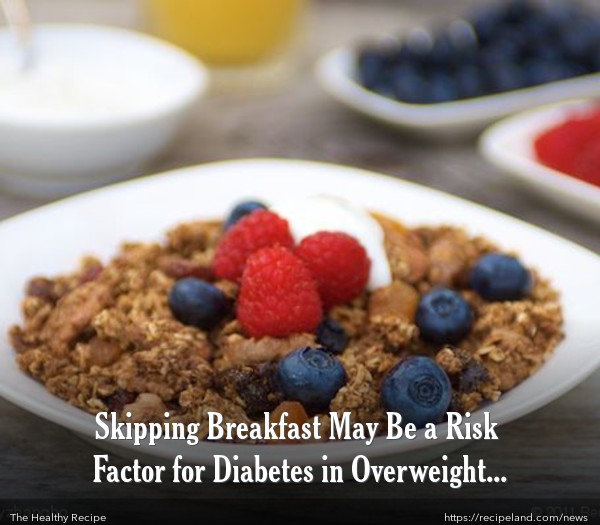Type 2 diabetes is the most common form to affect adults. It occurs when the body cannot produce enough insulin, or process it effectively, to break down glucose (sugar) that has been eaten. Glucose is meant to be broken down and stored as energy in the body, but many people who suffer from type 2 diabetes need to take insulin so that their bodies can process sugars properly.
Maintaining a healthy body weight through diet and exercise, and keeping cholesterol and blood pressure under control are the best ways to reduce your risk for developing diabetes.
New research shows that eating a healthy breakfast may also play an important role in avoiding diabetes – especially for overweight women who are already at risk.
This study, presented at the annual Endocrine Society meeting in San Francisco, found that overweight women who skipped breakfast had much higher insulin levels after eating lunch.
The level of glucose in your bloodstream rises after eating, which usually triggers an increase in insulin production.
In this study, the overweight women showed short-term signs of insulin resistance, which is a major risk factor in developing diabetes if becomes a chronic problem.
Eating many small meals throughout the day, or skipping meals, are not good choices for people who are at risk for developing diabetes. Dr. Zonszein suggests that it is better to eat three meals a day - with lunch being the largest meal - and eating a smaller dinner in the evening.(1)
Similar studies have found the same link between skipping breakfast with insulin resistance in overweight youth, as well as increased body fat.(2)
Eating breakfast can help keep insulin and glucose levels in balance, and can even help you lose weight – which also helps reduce your risk for diabetes. “Food consumed in the morning may be more satiating, and this may provide a plausible mechanism for effects of breakfast on body weight.”(3)
If you are already overweight or have other risk factors for developing diabetes, it is important to eat a healthy breakfast to avoid insulin resistance.
If you are trying to lose weight, this research supports other studies that suggest skipping breakfast can actually do more harm than good.
American Diabetes Association:
(1)Elizabeth Thomas, M.D., instructor, medicine, University of Colorado School of Medicine, Aurora; Joel Zonszein, M.D, professor, clinical medicine, Albert Einstein College of Medicine, and director, Clinical Diabetes Center, Montefiore Medical Center, New York City; Ping Wang, M.D., professor, medicine, and director, University of California Irvine Health Diabetes Center; June 16, 2013, presentation, Endocrine Society annual meeting, San Francisco
(2)Alexander, K., Ventura, E., Spruijt-Metz, D., Weigensberg, M., Goran, M., & Davis, J. (2009). Association of breakfast skipping with visceral fat and insulin indices in overweight Latino youth. Obesity (Silver Spring, Md.), 17(8), 1528-1533. doi:10.1038/oby.2009.127
(3)Gibson, S. A., & Gunn, P. P. (2011). What's for breakfast? Nutritional implications of breakfast habits: insights from the NDNS dietary records. Nutrition Bulletin, 36(1), 78-86. doi:10.1111/j.1467-3010.2010.01873.x










Comments